Nearly forty years ago, Glenn Burke made the momentous decision to come out publicly as gay — making him the first Major League Baseball player to do so.
“It came to the point where I was uncomfortable,” Burke told Bryant Gumbel on TODAY in 1982, three years after he retired from the MLB. “I thought the world should know how I felt.”
Burke sat down with Gumbel the same day that the now-defunct Inside Sports magazine published his coming-out story, “The Double Life of a Gay Dodger.”
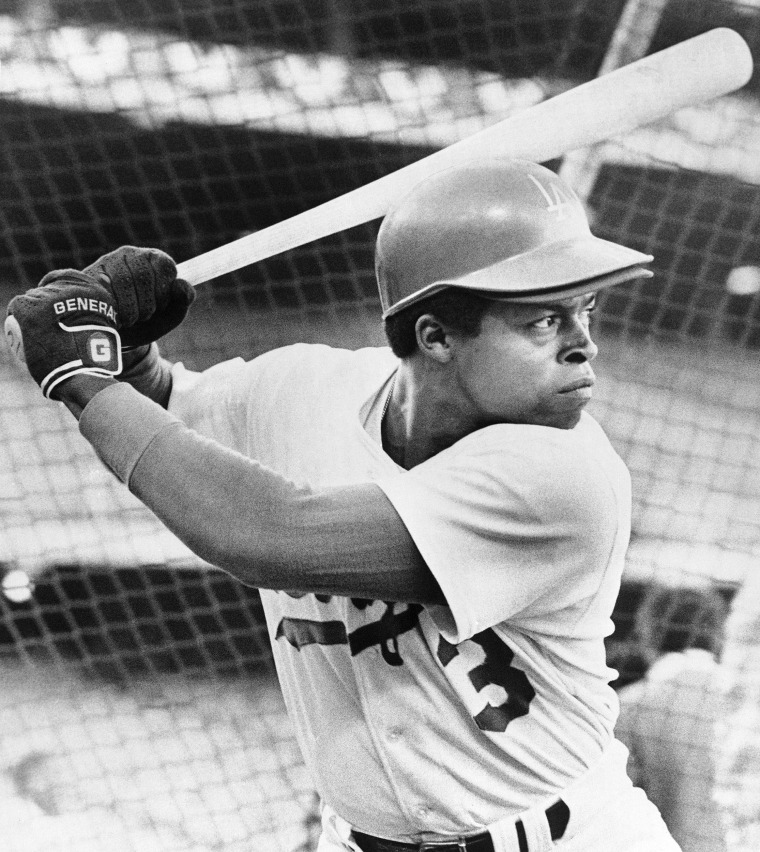
Burke was the only rookie to start in the 1977 World Series while playing for the Dodgers between 1976-1978 before being traded to the Oakland Athletics in 1978. He is also widely credited with inventing the high-five after running onto the field to congratulate his Dodgers teammate Dusty Baker on his 30th home run in 1977 by raising his hand over his head and Baker meeting his and slapping it.
After a knee injury resulted in a demotion to the minors, Burke’s promising career was cut short after only four seasons, and his legacy has primarily remained in the shadows until recently.
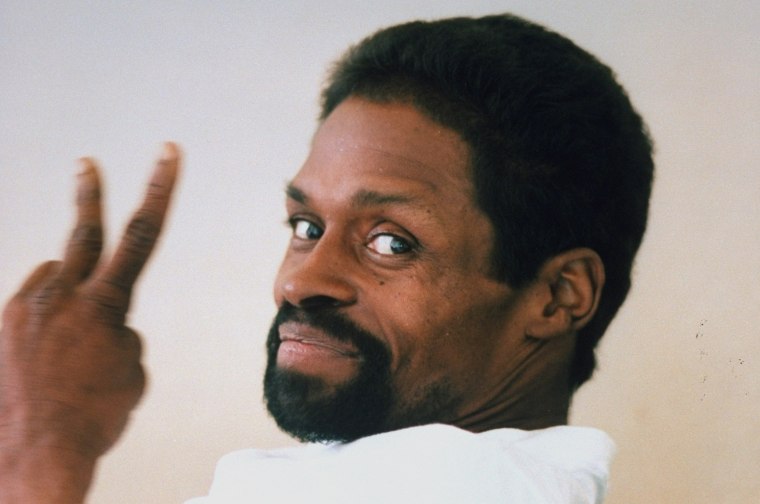
“His story has been hidden for so long, I think, because of the powerful organizations he was associated with in the 1970s not wanting to broadcast his story,” Andrew Maraniss, who wrote the book “Singled Out: The True Story of Glenn Burke,” told TODAY by phone.
“His name is back,” he said, citing improved diversity efforts in sports and society in general.
Earlier this month, during the Dodgers’ ninth annual Pride Night on June 3, the team honored Burke in a pregame ceremony that included more than 40 members of Burke’s family.
But Burke’s experience playing for the Dodgers stood in stark contrast to the smiles and rainbows on that celebratory night.
“Were you traded from the Dodgers to the A’s because you were gay?” Gumbel asks Burke in the 1982 interview. “I’m not sure,” Burke replies. When Gumbel asks what he thinks, Burke replies, “Yeah.”
The discrepancy between then and now was apparently not lost on Lutha Burke Davis, Burke’s oldest surviving sister. “Glenn probably would have said, ‘Dang, about time!’” she told The New York Times before the Dodgers’ Pride Night.
Maraniss’ book tells Burke’s story from his childhood growing up in Oakland and his journey to the World Series to discovering his sexuality, facing injury, dealing with addiction, and dying of AIDS-related causes in 1995.
I thought if I just kept it to myself for a while until I was ready to tell them that they might understand if they got to like me first instead of what I’d done, you know, sexually or something like that.
Glenn Burke
After declining a bribe to marry a woman by the Dodgers’ general manager Al Campanis, Maraniss said, the team traded him to Oakland, where he faced homophobia from teammates and fans; he rarely played at all before being sent to the minors in Utah.
Burke told Gumbel that he guessed people in baseball knew he was gay from hearsay. “Because I hadn’t said a thing,” he said. “I was just working and playing ball and living a regular life, I thought.”
He added: “I thought if I just kept it to myself for a while until I was ready to tell them that they might understand if they got to like me first instead of what I’d done, you know, sexually or something like that.”
Maraniss said that “neither team (was) eager to tell his story, the MLB either.”
“Burke was actually hoping he would re-emerge and get another shot in sports when he spoke to Bryant Gumbel,” he told TODAY. “At the time, most of the stories in national media about gay men focused on the AIDS crisis. He was hoping his story could change that image.”
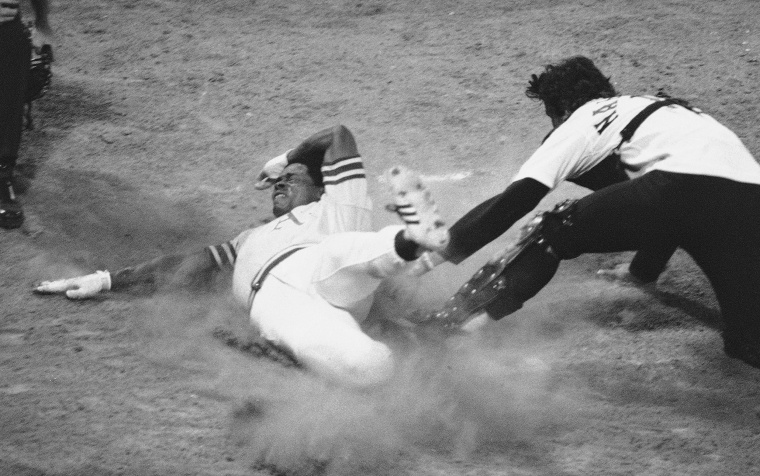
Burke’s longtime friend Cloy Jenkins was with him when Burke received the call inviting him to New York City to appear on TODAY with Gumbel, and he accompanied him to the interview.
“A call came from NBC looking for Glenn and asked me if I knew how to contact him,” Jenkins, 80, told TODAY. “And I said, ‘Well, he’s right here.’”
Jenkins said that Gumbel had always wanted to know what had happened to Burke. “Bryant was interested in knowing if Glenn would go back to sports,” he told TODAY. “Even though it was still the ‘80s, straight people were getting a little bit better, and Glenn thought he might be accepted this time around.”
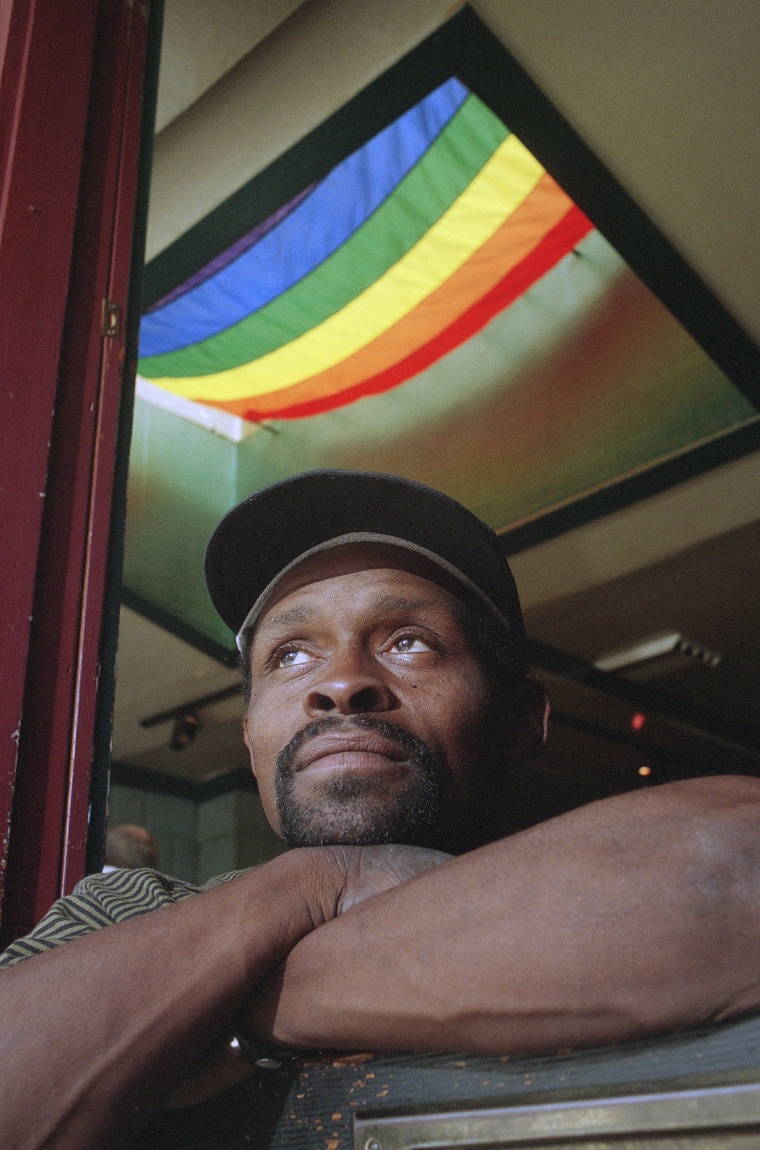
Jenkins said Burke was thrilled about the opportunity to be interviewed by Gumbel and tell his story.
“Glenn felt things were shaping up and he could get back out there,” he said. “His whole life was sports, sports, sports. It’s all he knew.” Jenkins described his friend as a “floundering soul” once he was benched in the MLB.
“So, the interview, plus we went to Philly right after and he saw some old buddies who played for the Phillies, it all gave him some hope,” Jenkins said.
Burke told Gumbel about his post-retirement plans: “Eventually I want to be a coach, you know, if it’s possible. So, I really have to go back to school and get my education.”
“Do you think that’s possible with people knowing what they do now?” Gumbel asks. “Anything’s possible,” Burke answers.
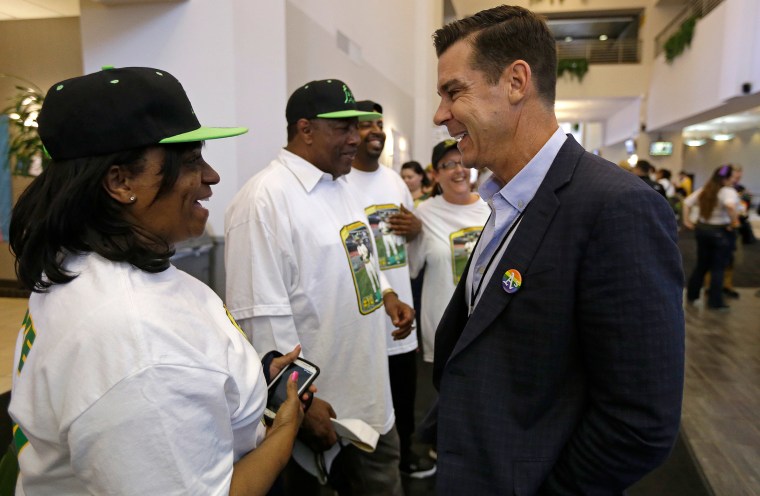
Burke kept active in sports, competing in the Gay Games in track in 1982 and basketball in 1986. He played for several years in San Francisco’s Gay Softball League on the Pendulum Pirates, which won the Gay World Series in the summer of 1982.
He presented Gumbel with the team’s hat at the end of their interview.
Tragedy struck in 1987 when Burke was hit by a speeding car while crossing a street, crushing his leg and foot.
Burke, who already had a history of drug use according to Maraniss, became addicted. Jenkins believes the pain from the injury pushed him more into addiction and things began to spiral out of control.
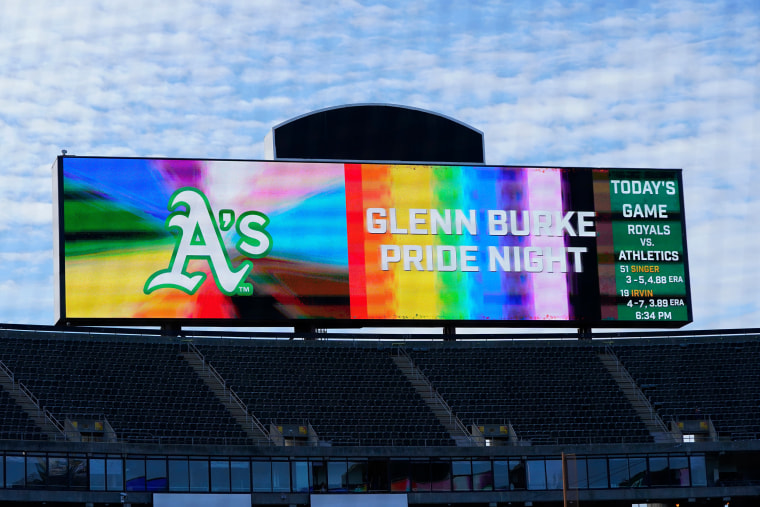
“Glenn was not one to have a lot of self-discipline to cope with things and the real world,” he said.
Burke died in May of 1995 at age 42.
Even though it’s been decades since Burke’s coming out, Jenkins is glad to see renewed interest in his friend’s legacy.
“His career ended in a side note instead of a historical story,” he said. “As time’s have changed so much, hopefully, his story will keep inspiring change. That’s what he wanted.”